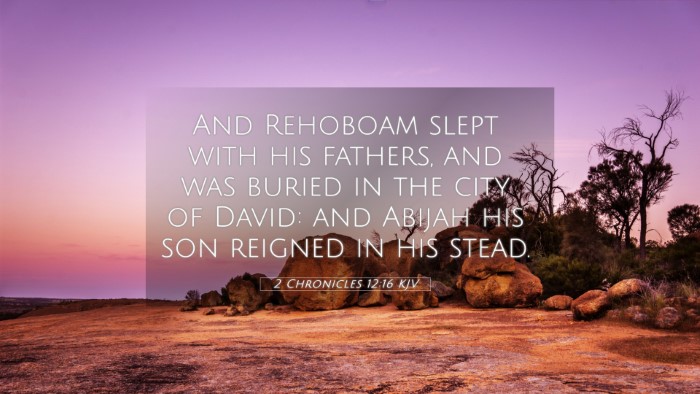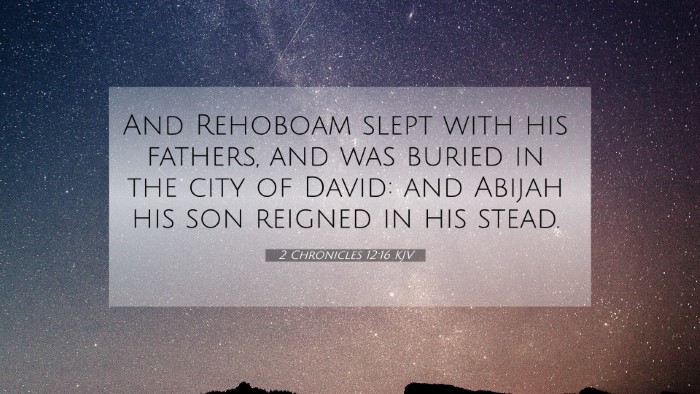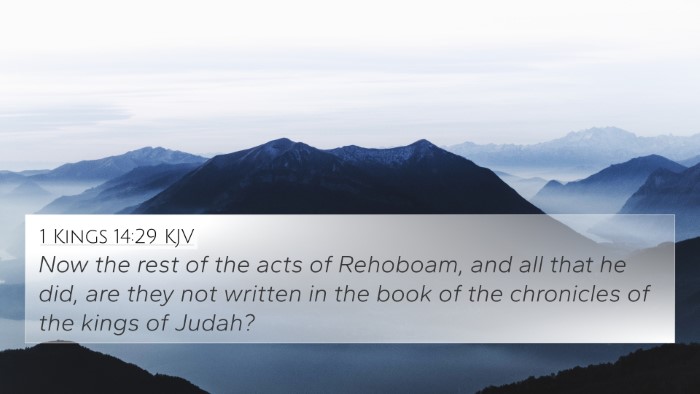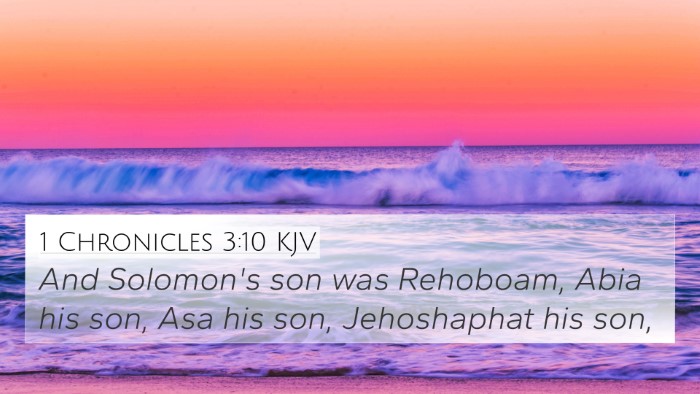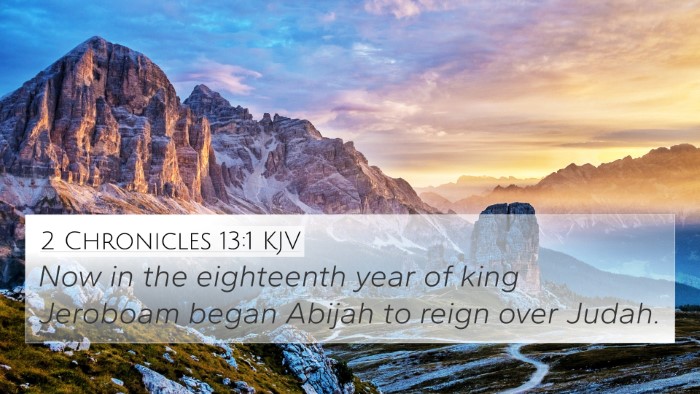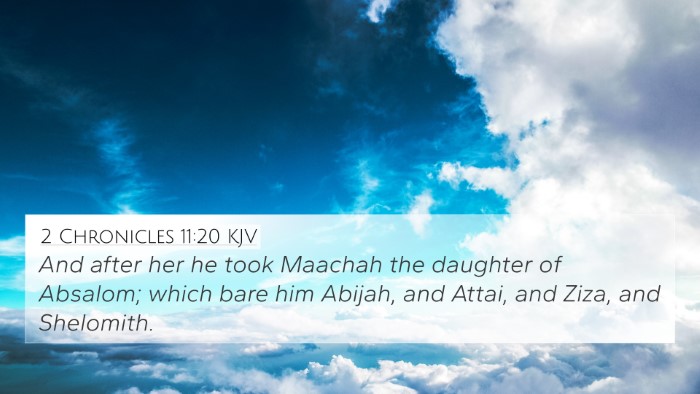Understanding 2 Chronicles 12:16
2 Chronicles 12:16 states, "And Rehoboam slept with his fathers, and was buried in the city of David: and Abijah his son reigned in his stead." This verse signifies a transition in leadership from Rehoboam to his son Abijah within the context of the history of Israel's monarchy.
Summary of Meaning
This passage marks the end of Rehoboam’s reign and his death, which is significant both politically and spiritually in the narrative of Israel's kings. The verse provides a closure to the reign of Rehoboam, while simultaneously introducing the next king, Abijah.
From public domain commentaries by Matthew Henry, Albert Barnes, and Adam Clarke, we can observe several layers of interpretation:
-
Matthew Henry's Commentary highlights the importance of Rehoboam's legacy, noting that his reign was characterized by strife and division among the tribes of Israel. His death seemingly reflects a judgment on his leadership failures, particularly his failure to heed the counsel of his elders, leading to the divisive split of the kingdom.
-
Albert Barnes emphasizes the contrast between Rehoboam and his son Abijah, indicating that the circumstances surrounding Rehoboam’s reign had set the tone for Abijah’s leadership. Abijah's rule begins under the shadow of his father's mistakes, which offers a rich ground for reflection on leadership and the impact of one's actions upon future generations.
-
Adam Clarke provides insights into the burial practices of the kings and draws attention to the significance of being buried in the city of David, which symbolizes honor and acknowledgment of one’s rule. Clarke also discusses the character and policies of Abijah, setting the stage for his rule and the continuity of the Davidic line.
Connections Between Bible Verses
This verse is rich with inter-Biblical dialogues and can be cross-referenced with several other scriptures that highlight similar themes of kingship, succession, and divine judgment:
- 1 Kings 14:31 - This verse speaks about Rehoboam’s reign, offering context about his father Solomon and the decline following through the generations.
- 2 Chronicles 11:20-21 - Provides an insight into Rehoboam's personal life and family, which can help illustrate the context behind the succession.
- 2 Chronicles 13:1-2 - Discusses Abijah’s reign, giving further details of his character and actions that contrast with his father's rule.
- 1 Kings 15:1-8 - Covers the reign of Abijah and includes parallels in the assessments of both kings’ actions and divine favor.
- 2 Samuel 7:12-16 - God's promise to David regarding his lineage, illustrating the significance of each king’s behavior in relation to this covenant.
- 2 Chronicles 1:3 - Reflects on the spiritual state and actions of the nation during the transitions between these kings.
- Jeremiah 22:1-5 - Offers a prophetic view into the importance of justice and righteousness in governance, relevant to the lessons learned from Rehoboam’s reign.
Thematic Bible Verse Connections
Several themes emerge from 2 Chronicles 12:16 which can be explored through comparative Bible verse analysis:
- Leadership and Succession - The biblical narrative often highlights the direct consequences of a leader’s actions on their successors. Rehoboam's choices lead to a divided kingdom, impacting Abijah’s ability to lead effectively from the outset.
- Righteousness versus Wickedness - This transitions to a broader discussion of how God evaluates kings based on their faithfulness to His covenant, which is a recurring theme throughout both the Old and New Testaments.
- The Finality of Death - The transition from life to legacy is fundamental; Rehoboam’s death signifies the end of an era and is a reminder of the temporal nature of earthly power.
- Divine Judgment - Rehoboam’s failures serve as an example of how divine judgment operates through historical narratives, affecting both his reign and those that follow.
Tools for Bible Cross-Referencing
Understanding Bible verse connections can be enriched through various tools:
- Bible Concordance: A comprehensive listing that helps locate verses and their occurrences throughout the Bible, beneficial for identifying thematic links.
- Bible Cross-Reference Guide: Handy guides that provide quick reference links between verses which can illustrate parallel themes or stories.
- Cross-Reference Bible Study: Methods to facilitate deeper understanding of scriptural contexts and interrelationships through systematic study.
- Bible Chain References: A technique that allows readers to follow thematic or narrative chains through various books of the Bible.
Conclusion
2 Chronicles 12:16 encapsulates significant themes around leadership and divine judgment, with implications that stretch throughout Scripture. Understanding these connections enhances our grasp of biblical history and its moral teachings, providing insights into how past decisions resonate through time in the narrative of God’s people.

